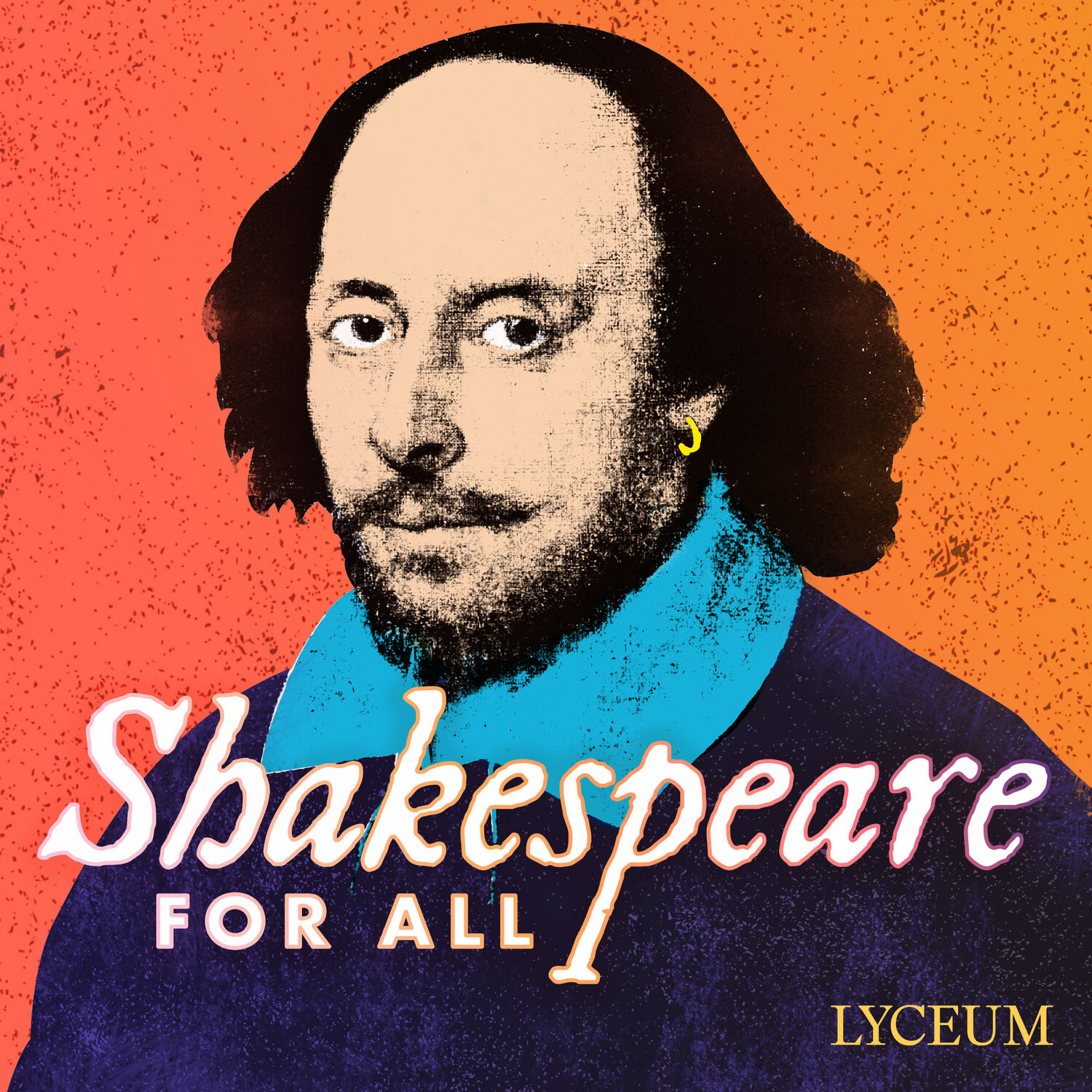Love’s Labours Lost
“NOT LIKE AN OLD PLAY”
What You'll Learn
The story of Love’s Labours Lost and the kind of rhetoric it showcases
How the play engages with key culture issues of Shakespeare’s day, especially the nature and purpose of education
How the play subverts romantic comedy by taking romance more seriously
Course Outline
Episode 1: Summary of the play with commentary
Episode 2: Analysis of the play’s cultural themes, character arcs, and genre
Episode 3: Actors’ recordings of key speeches from the play and discussion of those speeches
Works Consulted for this Course
Carroll, William C. “A Modern Perspective: Love’s Labours Lost.” The Folger Shakespeare Library. <https://shakespeare.folger.edu/shakespeares-works/loves-labors-lost/loves-labors-lost-a-modern-perspective/>
Cohen, Walter. “Introduction,” Love’s Labours Lost, in Shakespeare, William. The Norton Shakespeare. Edited by Stephen Greenblatt, Walter Cohen, Suzanne Gossett, Jean E. Howard, Katharine Eisaman Maus and Gordon McMullan. 3rd ed. New York: W. W. Norton & Company, 2016.
Garber, Marjorie B. Shakespeare After All. New York: Pantheon Books, 2004.
Shakespeare, William. Love’s Labours Lost. Edited by Jonathan Bate and Eric Rasmussen. The RSC Shakespeare. Basingstoke: Macmillan Publishers Ltd, 2008
Shakespeare, William. The Riverside Shakespeare. 2nd ed. Edited by G. Blakemore Evans, and J. J. M Tobin. Boston: Houghton Mifflin, 1997.
Love’s Labours Lost is one of Shakespeare’s funniest comedies and at the same time one of his most morally serious. The King of Navarre and three of his lords vow to spend three rigorous years studying and fasting – and isolating themselves from women. But no sooner are the vows made than four noblewomen of France turn up and tempt the men to break their vows. The comedy combines rhetorical fireworks and farcical stage-action – not to mention numerous reluctant revelations of love – that keep us laughing and prime us for a classic romantic-comedy ending. But a surprise twist in the final scene upends our expectations and drives home the play’s serious questions: what is the purpose of education? And how does one earn another’s love? In this course, you’ll learn the story of Love’s Labours Lost, see how it engages with key cultural issues of Shakespeare’s day, and ends as thoughtfully as it does unconventionally.
In Part 1, you’ll be guided through a detailed account of the story with commentary by Gordon Teskey, Francis Lee Higginson Professor of English Literature at Harvard University. Many critics claim that Love’s Labours Lost is too difficult for modern readers to understand and enjoy, but here you’ll be guided on how to approach this play and on the kind of pleasures it offers. This summary is told using the language of the play itself, placing key quotations in context to help you understand where these lines come from and what they mean.
Part 2 discusses both the play’s humor and its serious engagement with Renaissance culture, especially the humanist-style program of education that the lords pursue. This Renaissance model inspired many of the educational programs we continue today, but as the episode discusses, the play questions what goals lie behind the Renaissance ideal: does it pursue sympathy, knowledge, or power? The episode also charts the male characters’ moral failures and growth, and how the play treats marriage more seriously than many comedies do by refusing to end with marriage.
Part 3 features close-readings of three key speeches from Berowne, the most reflective of the lords. Taken from the beginning, middle, and end of the play, these speeches chart his imperfect but growing awareness of ideals beyond the “fame” that comes from study.
You can hear the third episode of this course for free below. For access to the full course and all of Season Two, subscribe today on Himalaya Learning. Use the promo code BARD for 30 days free.
Speeches and Performers
Berowne, Act 1, “I can but say their protestation over …” (Esmonde Cole)
Berowne, Act 4, “Consider what you first did swear unto …” (Esmonde Cole)
Berowne, Act 5, ““Taffeta phrases, silken terms precise …” (Esmonde Cole)
Course Instructor
Gordon Teskey
Francis Lee Higginson Professor of English Literature at Harvard University
Gordon Teskey is Francis Lee Higginson Professor of English at Harvard University. He is author of Allegory and Violence, Delirious Milton, Spenserian Moments, and The Poetry of John Milton, which received received the Christian Gauss Prize for literary criticism and the Milton Society of America’s James Holly Hanford Book Award. Teskey is editor of The Norton Edition of John Milton’s Paradise Lost (the second, expanded edition published in 2020) and has been named Honored Scholar of the Milton Society of America. Among his wide-ranging essays Teskey has written on Shakespearean metatheatre and poetic styles in Shakespeare’s plays. He is an advisory editor for, and a contributor to, the Stanford Global Shakespeare Encyclopedia. He has held a Guggenheim Fellowship, two National Humanities Research Fellowships, and a Visiting Research Fellowship at Merton College, Oxford.



